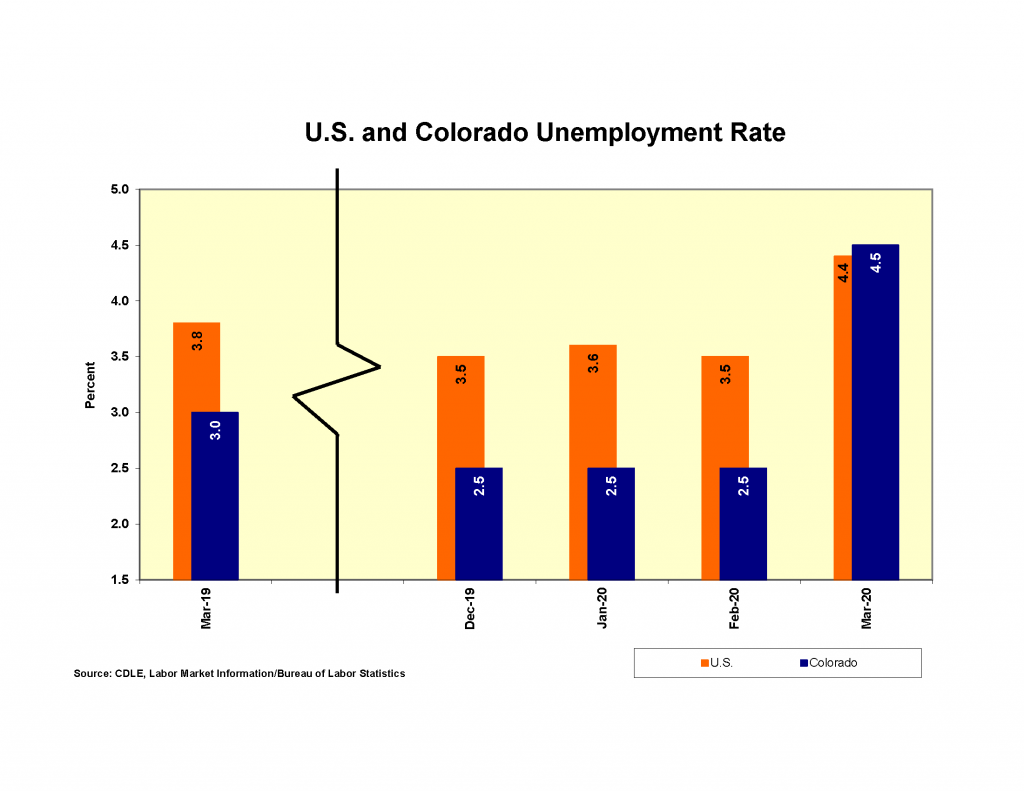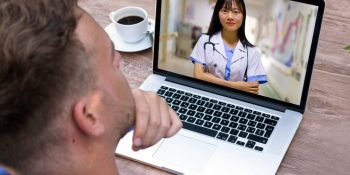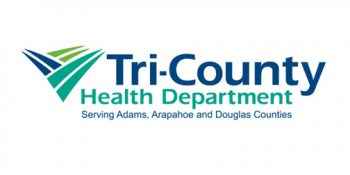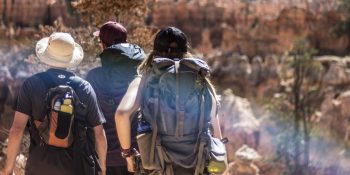Colorado U.S. Senator Michael Bennet joined 26 senators in calling on Congressional leadership to commit at least $1 billion in funding for the Lifeline program in future Coronavirus Disease 2019 (COVID-19) relief in order to meet the connectivity needs of Americans. Since 1985, the Federal Communications Commission (FCC)’s Lifeline program has made basic internet and telephone service more affordable for low-income Americans.
“The Coronavirus and resulting public safety measures taken by states, municipalities, and vigilant citizens are a resounding demonstration of the importance of Lifeline and other FCC universal service programs,” wrote Bennet and the senators in the letter to Senate Majority Leader Mitch McConnell (R-Ky.), Senate Minority Leader Chuck Schumer (D-N.Y.), House Speaker Nancy Pelosi (D-Calif.), and House Minority Leader Kevin McCarthy (R-Calif.). “Already, Lifeline provides millions of Americans with essential connections by providing free or discounted broadband and voice services. This meaningful assistance is needed now more than ever. Social distancing, school closures, layoffs, and shelter-in-place rules have spurred a dramatic new reliance on telework, distance education, online employment, and telehealth. No one should have to put their health at risk, lose employment, lose access to education, or face isolation because they cannot afford broadband.”
With tens of millions of Americans now working from home, attending school virtually, and using telehealth services, Bennet and the senators emphasized the critical need for additional funding to improve the program’s level of service, to expand the choice of eligible broadband providers, and to meet surging demand.
Recently, Bennet and his colleagues wrote letters to both the Federal Communications Commission and Senate leaders calling for immediate action to help students access the technology they need to learn remotely. In March, Bennet and his colleagues also wrote to the Federal Communications Commission to ensure Americans are not disconnected from the Lifeline program during the coronavirus outbreak. Bennet also called on the nation’s top internet service providers to take extraordinary measures to maintain and expand online connectivity during the pandemic for students and families.
In addition to Bennet, the letter was also signed by U.S. Senators Richard Blumenthal (D-Conn.), Edward J. Markey (D-Mass.), Ron Wyden (D-Ore.), Brian Schatz (D-Hawaii), Amy Klobuchar (D-Minn.), Gary Peters (D-Mich.), Kamala Harris (D-Calif.), Dick Durbin (D-Ill.), Jack Reed (D-R.I.), Jeff Merkley (D-Ore.), Cory Booker (D-N.J.), Kirsten Gillibrand (D-N.Y.), Tammy Baldwin (D-Wis.), Tammy Duckworth (D-Ill.), Elizabeth Warren (D-Mass.), Bernie Sanders (I-Vt.), Mazie Hirono (D-Hawaii), Chris Van Hollen (D-Md.), Maggie Hassan (D-N.H.), Sheldon Whitehouse (D-R.I.), Chris Coons (D-Del.), Jeanne Shaheen (D-N.H.), Bob Casey (D-Pa.), Mark Warner (D-Va.), Tim Kaine (D-Va.), and Ben Cardin (D-Md.).
The text of the letter is available HERE and below.
Dear Leader McConnell, Speaker Pelosi, Leader Schumer, and Leader McCarthy:
We write to urge you to consider the pressing needs of the Lifeline assistance program during the Coronavirus pandemic in any future relief package. As Americans face new financial hardships, turn to distance learning, attend religious services virtually, and are required to telework, access to fast, robust, and reliable home internet and telephone services is essential for their economic, social, and civic wellbeing. Congress should provide the dedicated funding necessary to meet the urgent increase in demand for Lifeline assistance and keep tens of millions of Americans connected.
The Coronavirus and resulting public safety measures taken by states, municipalities, and vigilant citizens are a resounding demonstration of the importance of Lifeline and other FCC universal service programs. Already, Lifeline provides millions of Americans with essential connections by providing free or discounted broadband and voice services. This meaningful assistance is needed now more than ever. Social distancing, school closures, layoffs, and shelter-in-place rules have spurred a dramatic new reliance on telework, distance education, online employment, and telehealth. No one should have to put their health at risk, lose employment, lose access to education, or face isolation because they cannot afford broadband.
We request that you include at least $1 billion in funding for the Lifeline program in order to meet the fundamental connectivity needs of tens of millions of Americans. Currently, the FCC sets a minimum Lifeline service standard for mobile carriers of 1,000 voice minutes and 3 Gb of data on 3G connections – service plans that resemble 2010, not 2020. The current baseline is woefully insufficient to last a few days for students taking online courses or families using video chat services, let alone for a full month in times of isolation. Moreover, as physicians turn to telehealth to protect patients and ensure continued care, better access is becoming more important for more communities. Increased funding would allow for a better reimbursement rate and other support that would secure the levels of service needed for modern applications.
Further funding would also enable the FCC to expand the choice of eligible broadband providers, at least on a temporary basis during this health crisis and the economic recovery from it. That should mean opening up the program to other broadband providers and also allowing for more mobile hotspot coverage. While Congress made some limited progress in securing funding to improve infrastructure for rural communities, including in the CARES package, affordable connections for urban and suburban communities have been left out of these efforts. For far too many the insurmountable barrier is price, not availability. By allowing Lifeline subscribers to take their discount to residential broadband providers and others, Congress could open up much-needed competition, providing choice and improving outcomes for subscribers.
Finally, Lifeline will need to meet an anticipated surge of demand. With sudden business closures, reduced hours, and new financial pressures, millions more Americans will qualify for assistance and need this vital help. We are concerned that without the additional funding requested above, the Lifeline program does not have the financial resources to equitably support even a moderate but prolonged increase in demand, in response to an economic downturn. The FCC should also have resources necessary to advertise Lifeline, as well as exercise its authority to ensure Lifeline providers aggressively advertise their Lifeline offerings. Funding can also improve the application process, including better oversight of the program and, importantly, streamlining the application process for those falling on hard times. Americans must know that help is available and be able to access that assistance.
We urge you to provide additional funding for the Lifeline program in any future Coronavirus relief packages to ensure that Americans can continue to depend on critical assistance when they need it. As our financial, educational, social, civic, and healthcare needs become more dependent on the internet during this crisis, Congress must commit to ensuring that no one loses connectivity. Thank you for your attention to this important matter.
image credit: MGN Online
SPREAD THE NEWS
COMMENT, Like, Follow & SHARE @I70Scout









